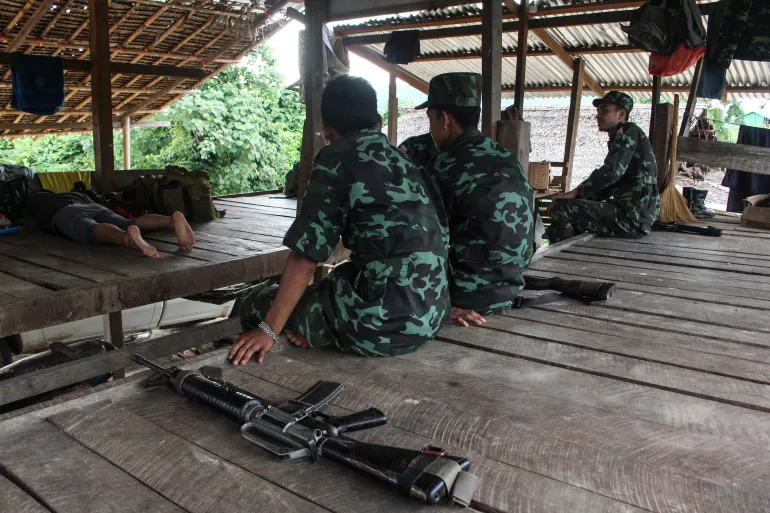In the lush, rolling hills of southern Myanmar’s Tanintharyi region, rebel fighters are actively stationed at checkpoints to monitor traffic moving toward a town still under control of the Myanmar military. In a notable shift from past dynamics, members of the “Muslim Company,” a relatively obscure group, are now fighting alongside predominantly Buddhist and Christian factions against military oppression.
The recent actions of these fighters underscore an intensifying struggle against the military’s authority, especially through a united front aimed at achieving democracy in Myanmar. In a statement to the media, the leader of the Muslim Company, Mohammed Eisher, explained, “In Tanintharyi, no single group dominates; the military’s oppression affects everyone regardless of ethnicity.”
The “Muslim Company,” referred to as the 3rd Company of Brigade 4 within the Karen National Union (KNU), consists of 130 soldiers committed to resisting the military’s violent tactics. Eisher noted that the nature of their resistance transcends religious affiliations; they are collectively fighting against what they see as a repressive regime.
Historically, Muslims in Myanmar have faced significant discrimination and violence, but the current rebellion highlights a newfound solidarity among different ethnicities and faiths. Many within the Muslim Company are descendants of migrant communities, including those with Arab, Persian, and Indian roots.
The brutality of the ongoing conflict was previously encapsulated in the actions surrounding the civil unrest. The recent testimony of a local resident, Houssine Youabeb, emphasizes the harsh reality many face. “As long as the military remains in control, everyone, including Muslims, will continue to be oppressed,” he stated.
Eisher expressed hope that the inclusion of marginalized groups like the Muslim Company would help ease long-standing cultural tensions and foster unity among various resistance factions. This cooperation is regarded as essential in the fight against the military, which has historically sought to maintain authority through violent means and oppression.
As tensions mount, the need for support and recognition of the struggles faced by these diverse groups has never been more pressing. “This war is not just about one organization or one identity,” Eisher stated. “It’s about all of us coming together to demand our rights and live freely.”
With significant stakes involved for the future of Myanmar, the blend of fighters from multiple backgrounds striving for democracy exemplifies the evolving political landscape and growing cooperation against the military’s oppressive policies. As the struggle continues, the hope remains that unity among different communities will lead to meaningful change in the region.
Credit: Aljazeera





